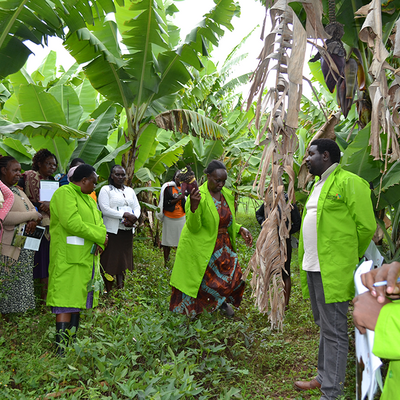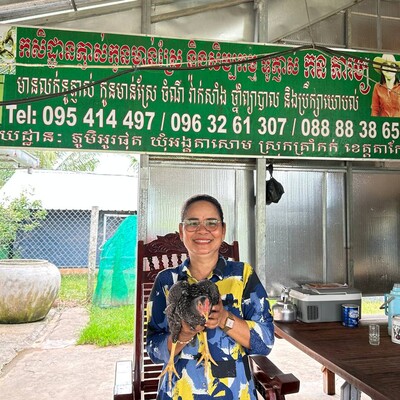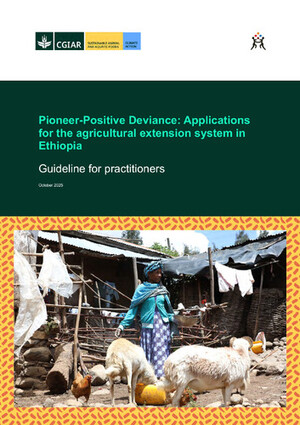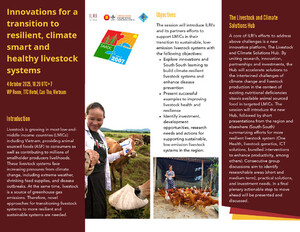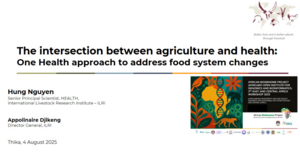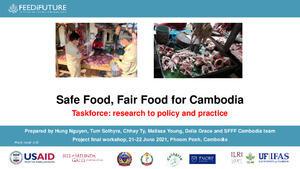
Role of trust and collaborative networks in developing smallholder farmers’ agribusiness capacities
Cows grazing in Nicaraguan hillsides (photo credit/ Dirk Hauke Landmann).
Farmers’ capacity to solve their own problems is a crucial factor in the success of any agriculture sector venture. In the recent past, development practitioners have devoted considerable effort to empowering small-scale farmers through learning alliances to enable them to develop solutions to the challenges they face.
Learning alliances are a prevalent approach used in development programs to develop value chain actors’ capacity by fostering knowledge sharing and innovation. The main goal of these alliances is to initiate and boost collaboration amongst stakeholders hence adding value to their established networks.
A recent study in Nicaragua, however, shows that even with the growing popularity of learning alliances, it is difficult to quantify whether they increase the capacity of partners compared to other networks with similar goals. Researchers from the International Livestock Research Institute (ILRI) and the Georg-August-Universitåt in Germany evaluated the business relationship constructs of trust and capacity development in the Nicaraguan Learning Alliance (NLA).
Formed in 2003, the NLA is an alliance of organizations that trains partners in agribusiness management and access to markets. It creates synergistic relationships between members and builds a network that shares knowledge and innovations with farmers. The study evaluated trust as a conduct variable and capacity development as a performance variable based on the alliance’s objectives.
The researchers assessed how the NLA strengthens producers’ capacities through the structure and network of members and partners. They evaluated the NLA membership composition and diversity, gender, cultural norms, information sharing, joint quality standards, market information and trust. Three complementary theories were used in the evaluation, namely: marketing relationship management, the structure-conduct-performance model and new institutional economics.
Data was collected from NLA members, their influenced partners, agribusiness private companies and universities in the provinces of Matagalpa, Jinotega, Estelí, Madriz, Nueva Segovia, Masaya and Chinandega. Results show that the NLA has been successful in developing smallholder farmers’ capacities in regions where the alliance members work because of the trust developed through its dedicated project managers.
 Structure of knowledge replication within the Nicaraguan Learning Alliance
Structure of knowledge replication within the Nicaraguan Learning Alliance
(source: Landmann and Cadilhon, 2016).
The study found that Nicaraguan farmers are organized in a dense network of cooperatives but they are not well equipped to link themselves to suppliers and customers in the market-oriented system. It was identified that agribusiness training can make a difference in empowering farmers and their cooperatives to become better managers of their enterprises and livelihoods. Suitable training topics and methods, adaptable to the local contexts, were identified in a bid to promote equity across gender and social groups, besides encouraging individual and collective engagement in entrepreneurial activities.
Further results from the survey — that used both quantitative and qualitative data analyses — indicate that the NLA has not been more successful at developing agribusiness capacities among Nicaraguan farmers than other networks with the same goals. A majority, 77%, of respondents reported being supported by more than one organization, which could indicate that a connection to the NLA does not have a significant influence on innovation.
These findings point to the need for facilitating more interactions between different networks of farmers’ cooperatives and organizations with other stakeholders already active within the Nicaraguan agri-food innovation system. ‘Trustful relationships’ and ‘trustful contracts’ were seen to have a positive significant influence on innovation through capacity development efforts.
Lessons drawn from this Latin America study are valuable to Nicaragua and other developing countries. They provide a framework that can be used to evaluate the impacts of farmer capacity development initiatives, hence allowing for appropriate remedial actions to be taken. They also give practical findings regarding the structure, conduct and performance of the Nicaraguan agribusiness sector that can be replicated in other regions.
The study also makes a case for the importance of learning alliances as a means by which stakeholders can share knowledge on common ventures to improve their competency in solving their own problems. This is vital, given that capacity development is key to social and economic empowerment.
Read the full study ‘The role of trust and networks in developing Nicaraguan farmers’ agribusiness capacities’







